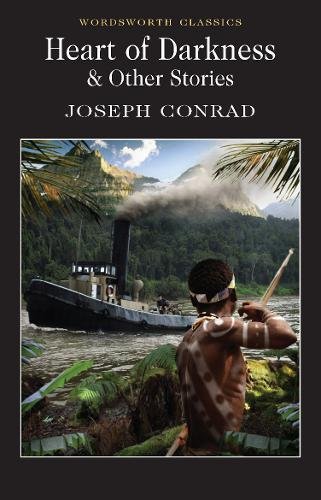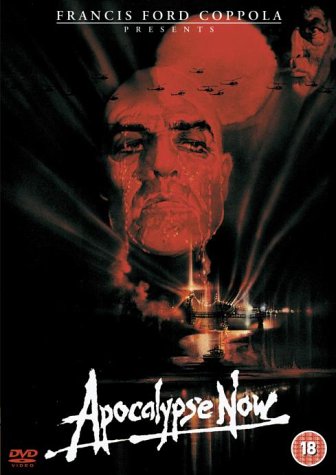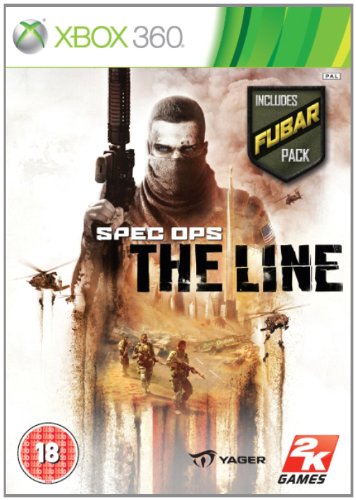
('Dubai' © Harald Felgner, 2008)
*
“GENTLEMEN, WELCOME TO DUBAI”:
SPEC OPS THE LINE’S HEART OF DARKNESS
by CHRIS MACHELL
~
Critical of contemporary colonialism yet irretreivably rooted in its racist traditions, Joseph Conrad’s Heart of Darkness is as important as it is problematic. As a critique of colonialist hypocrisy, the novella is also a profoundly racist text rooted in the contemporary ideology of a civilised Europe and a primordial, savage Africa: ‘a prehistoric earth … that wore the aspect of an unknown planet.’ Francis Ford Coppola adapted Conrad’s novella in 1979 with Apocalypse Now. Coppola’s film relocates ninenteenth-century ivory trading to the horrors of the Vietnam War, but the colonial concerns remain much the same.
 Apocalypse Now’s imagery has been borrowed by everything from the nostalgic Americana of Forrest Gump to the sci-fi insurgency of Rogue One: A Star Wars Story. But undoubtedly the most potent modern interpretation of the film is Yager Development’s 2012 video game Spec Ops: The Line. The game is an intense and unsettling distillation of the post-colonial anxiety and trauma present in Coppola’s film and Conrad’s novella. In Heart of Darkness, Marlow’s sense of reality becomes increasingly unstable: “the reality – the reality, I tell you – fades.” Similarly, Coppola filters Conrad’s imagery through the lens of 1970s counter-cultural psychedelia to create a nightmarish unreality. And by using the uncanny, interactive reality of a video game, Spec Ops: The Line reinterprets the post-colonial anxieties of its sources to critique US-led military interventionism and mediated violence in video games.
Apocalypse Now’s imagery has been borrowed by everything from the nostalgic Americana of Forrest Gump to the sci-fi insurgency of Rogue One: A Star Wars Story. But undoubtedly the most potent modern interpretation of the film is Yager Development’s 2012 video game Spec Ops: The Line. The game is an intense and unsettling distillation of the post-colonial anxiety and trauma present in Coppola’s film and Conrad’s novella. In Heart of Darkness, Marlow’s sense of reality becomes increasingly unstable: “the reality – the reality, I tell you – fades.” Similarly, Coppola filters Conrad’s imagery through the lens of 1970s counter-cultural psychedelia to create a nightmarish unreality. And by using the uncanny, interactive reality of a video game, Spec Ops: The Line reinterprets the post-colonial anxieties of its sources to critique US-led military interventionism and mediated violence in video games.
Adapting its Apocalypse Now’s narrative structure, Spec Ops has the player control Captain Walker and his two-man team, Delta Squad, as they investigate the whereabouts of his old commanding officer, Colonel Konrad. Along with his regiment, Konrad is trapped in Dubai after a catastrophic sandstorm has destroyed the city. Taking its cue from Conrad’s text – ‘you lost your way on that river as you would in a desert’ – Spec Ops substitutes a river for the boundless desert. The game plays with this inversion with an abundance of aquaria in many of the city’s hotels, as well as the surreal imagery of huge yachts stranded in sand dunes, like petrified waves.
Further references to Heart of Darkness and Apocalypse Now pepper the game throughout, with the diegetic use of ’70s-era rock music an obvious callback to Apocalypse Now. Additionally, the Radio Man who taunts you throughout the game is a reformulation of Dennis Hopper’s crazed photographer in Apocalypse Now, himself a modernised version of Kurtz’s Russian devotee in Conrad’s text. Copolla adapted Conrad’s novella into his era’s popular medium, film, so it is fitting that the text’s most recent adaptation should come in the form of a video game, interrogating modern military interventionism and the persistence of colonialist discourses in popular culture.
Much like Willard’s descent into madness in Apocalypse Now, Walker gradually becomes unhinged and delusional, and whilst he is only supposed to locate Konrad, every action that he takes leads to more carnage. Although Walker tries to talk to the first people whom Delta Squad encounter, they are immediately fired upon, and the player is forced to defend themselves. Fighting towards a looming hotel half buried in sand, Walker discovers that Konrad’s soldiers – the ‘Damned 33rd Regiment’ – are fighting the CIA. Although Walker initially tries to help the 33rd, they quickly turn against Delta Squad. Things descend into chaos, and it’s often difficult to remember whether Walker is fighting insurgents, the CIA or the 33rd.
 This is the basic structure of most of the game’s action – moving to an area to be attacked on sight, killing soldiers in order to progress. In the context of being relentlessly attacked, Delta Squad’s retaliation is initially understandable. However, as Spec Ops progresses it continually recontextualises the violence to create a growing sense of cognitive dissonance between the player’s enjoyment of the game and Walker’s unjustifiable actions. The atrocities that Walker commits mirror Willard’s participation in the slaughter of Vietnamese civilians and his mission to assassinate a decorated American colonel. Both characters are able to justify their action by contextualising them: Colonel Kurtz / Konrad has gone rogue, and the civilians they kill are just potential insurgents, but in both instances their justifications do little to assuage the unease of the viewer and the player.
This is the basic structure of most of the game’s action – moving to an area to be attacked on sight, killing soldiers in order to progress. In the context of being relentlessly attacked, Delta Squad’s retaliation is initially understandable. However, as Spec Ops progresses it continually recontextualises the violence to create a growing sense of cognitive dissonance between the player’s enjoyment of the game and Walker’s unjustifiable actions. The atrocities that Walker commits mirror Willard’s participation in the slaughter of Vietnamese civilians and his mission to assassinate a decorated American colonel. Both characters are able to justify their action by contextualising them: Colonel Kurtz / Konrad has gone rogue, and the civilians they kill are just potential insurgents, but in both instances their justifications do little to assuage the unease of the viewer and the player.
In Apocalypse Now’s most horrifying scene, where Laurence Fishburne’s Private ‘Clean’ massacres a family on their fishing boat, Willard absolves himself of responsibility by telling his crew, “I told you not to stop”, before murdering the surviving woman. Willard’s lack of compassion is echoed in Spec Ops’ most harrowing sequence. When confronted by an agonised soldier whom Walker has just burned with white phosphorous, he quips, “you brought this on yourself”.
The white phosphorous sequence is a key moment in the game where contextualisation evokes cognitive dissonance – depicting it as an atrocity in the player’s mind while justifying it in Walker’s. When Delta Squad come across a detachment of dozens of soldiers in a large compound, they find some conveniently-placed white phosphorous. The player is told not to use the substance, giving them the choice between fighting through the soldiers conventionally or just wiping them out in one go.
However, it quickly becomes clear that the player cannot progress without using the phosphorous, the only question is how long to hold out until they submit to the inevitable. So, of course, the player uses it, the reflection of his face illuminated on the monitor as they remotely detonate the weapon.
When Delta Squad arrive at the back of the compound, they find that the 33rd were protecting dozens of civilians, who are now dead by the player’s hand. Apparently oblivious to his own responsibility and mirroring Willard’s catastrophic fixation on his mission in Apocalypse Now, Walker tells his distraught comrades, “I’m gonna make these bastards pay for what they’ve done”. For Walker, this apparently means the destruction of Dubai’s water supply, damning the city’s population to death under the banner of saving them from the 33rd. In full rampage mode, Walker obliterates a hotel from a helicopter gunship, ostensibly to exact revenge on the 33rd, but in reality because he enjoys the violence.
 In this moment, the player and Walker become the same, both engaging in carnage for pleasure. Walker’s bloodied, filthy appearance resembles Willard’s terrifying spectre at the end of Apocalypse Now, but where Coppola’s film visualises the madness of warfare through Willard, Spec Ops juxtaposes pleasurable gameplay with Walker’s atrocities. The player’s cognitive dissonance is reinforced by the game’s loading screens, which begin to incorporate taunting phrases such as ‘This is all your fault’, ‘How many Americans have you killed today?’ and ‘Do you feel like a hero yet?’
In this moment, the player and Walker become the same, both engaging in carnage for pleasure. Walker’s bloodied, filthy appearance resembles Willard’s terrifying spectre at the end of Apocalypse Now, but where Coppola’s film visualises the madness of warfare through Willard, Spec Ops juxtaposes pleasurable gameplay with Walker’s atrocities. The player’s cognitive dissonance is reinforced by the game’s loading screens, which begin to incorporate taunting phrases such as ‘This is all your fault’, ‘How many Americans have you killed today?’ and ‘Do you feel like a hero yet?’
Through their complicity in Walker’s atrocities, Conrad’s eponymous heart of darkness is embodied in the player themselves. Spec Ops draws attention to the colonial discourse that speaks through the countless war games that justify violence through jingoistic flag-waving and fun, high-tech play mechanics. Just as Heart of Darkness and Apocalypse Now expose the paradox of philanthropic colonialism, Spec Ops uses the cognitive dissonance of war-based video games to critique our own complicity in mediated violence and contemporary interventionist discourse.
~
 Chris Machell lives in Brighton with his partner and works at the University of Chichester. He is also a freelance film critic, reviewing films for the award-winning website CineVue, and has also written for Little White Lies, The Quietus, The Skinny and the BFI. He occasionally writes about video games, and recently appeared as a guest on the video game music podcast, Forever Sound Version. You can find all of Chris’ archived work to date on his blog, CultCrack.
Chris Machell lives in Brighton with his partner and works at the University of Chichester. He is also a freelance film critic, reviewing films for the award-winning website CineVue, and has also written for Little White Lies, The Quietus, The Skinny and the BFI. He occasionally writes about video games, and recently appeared as a guest on the video game music podcast, Forever Sound Version. You can find all of Chris’ archived work to date on his blog, CultCrack.
His favourite film is Bride of Frankenstein, and his favourite video game is the cult Sega classic, Shenmue.


One thought on “Gentlemen, Welcome to Dubai”
Comments are closed.